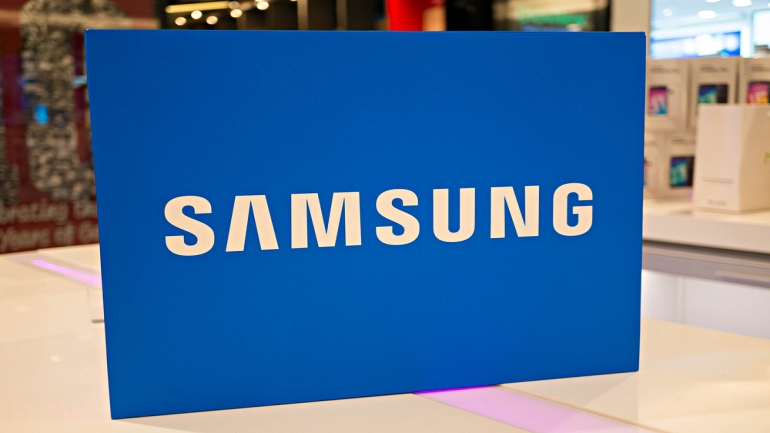The US-based RingLeader, Inc., a leading internet phone service provider specializing in SIP trunking communications technology, has extended free subscription to its North American calling services. The company is pledging 25,000 months of free service on its CrowdVoice Americas platform that offers secure mobile social communications in Mexico, Canada and the United States. Amid the COVID-19 pandemic, RingLeader is committed to helping families, small businesses and organizations that need reliable and affordable means to stay connected. The company will provide free messaging and VoIP services to each user, including unlimited inbound international calling and 500 minutes of free outbound calling per month, where services are available. Moreover, new customers will also be allocated a US phone number and an international phone number in Canada or Mexico, ensuring high-quality calls between the CrowdVoice app and landlines. RingLeader’s CEO Neil Darling said, “COVID-19 is severely impacting families around the world…
Liberty Global and Telefonica to merge their U.K. operations creating the leading fixed-mobile provider in the country Virgin Media, Liberty Global’s cable operator, and Telefonica’s mobile carrier O2 have announced an agreement to merge their UK operations in a 50-50 joint venture between the two companies. This mega-deal is valued at GBP 31.4 billion, with O2 worth GBP 12.7 billion and Virgin Media valued at GBP 18.7 billion. According to the announcement, this combination will create a stronger fixed and mobile competitor in the UK market, supporting the expansion of Virgin Media’s giga-ready network and O2’s 5G mobile deployment for the benefit of consumers, businesses and the public sector. The transaction is expected to close in mid-2021. Read more at https://tinyurl.com/yc42j66f Ericsson ‘talking to advisers’ about selling $1.2bn number portability unit Ericsson’s largest shareholder Cevian Capital has advised the communications equipment supplier to sell its 83.3% stake in the US number portability company Iconectiv, formerly known as Telcordia. For the past several years,…
In its quest to deliver more comprehensive next-generation enterprise networks, the UK-based Colt Technology Services has launched two new features underpinned by its SD-WAN platform, VoIP optimization and support for IPv6. The company is an innovator and pioneer in Software Defined Networks (SDN) and Network Function Virtualization (NFV), running its Colt IQ Network that now connects more than 900 data centers across Europe, Asia and North America’s largest business hubs with over 29,000 on-net locations. In a statement, the operator said that these new features address the shift in network demand that businesses around the world are currently experiencing, as many have to adapt to the new standards of mass remote working and having additional devices connecting to their already stretched networks. This coronavirus-induced shift to remote working means that enterprises now have a significantly increased demand for VoIP-enabled networking products. Peter Coppens, Vice President of Product Portfolio…
US telecoms will not charge late fees during COVID-19 pandemic Major US telecommunications companies such as AT&T, Comcast, Cox, and Verizon have expanded their policies to not charge late payments and cancel service for customers and small businesses affected by the COVID-19 pandemic until June 30. Furthermore, Comcast said that apart from extending the commitment through June 30 and providing its Wi-Fi hotspots to everyone, it would also extend the pause in its data plans to give all customers unlimited data at no extra charge. With tens of millions of Americans working from home, internet providers and the FCC say the internet is performing well. Read more at https://tinyurl.com/yd8wbxuv Google is making Meet free for everyone The tech giant has announced that Google Meet, its premium video conferencing product, will be free for everyone and will be fully accessible over the coming weeks. Previously, the Meet service was available only…
The Commission for Communications Regulation (ComReg), the Irish national regulatory authority, and the current Minister for Communications, Climate Action and Environment Richard Bruton TD have signed new regulations that will allow the release of additional radio spectrum to create extra capacity for mobile phone and broadband services. These are temporary measures taken in response to a sharp increase in the use of mobile networks, as people rely more heavily on their operators to communicate and stay connected during COVID-19 social distancing. According to ComReg, mobile operators have coped well with increased usage so far, but they have currently less headroom to accommodate further spikes in demand. ComReg Commissioner, Jeremy Godfrey, said, “The provision of this spectrum will help the mobile providers cater for the increased demand on their networks. ComReg will continue to work with industry and will support operators so that telecoms networks may continue to meet demand…
BEREC says COVID-19 won’t break the internet The Body of European Regulators for Electronic Communications (BEREC) has announced that the increase in Internet usage across the continent is more or less stabilizing and that networks have been able to withstand the pressure. BEREC said that national regulatory authorities (NRAs) have reported “a stabilization in the overall traffic, but some NRAs still observe an increase of the overall traffic.” Some operators have expanded their network’s capacity to cope with the steady growth of traffic. According to the organization, “operators, which did not take any such measure, are still closely monitoring their network’s capacity to check if an upgrade is necessary.” Read more at https://tinyurl.com/rxmg53l Vodafone slashes costs of core network functions across Europe using VMware’s telco cloud The UK-based telecoms operator Vodafone has completed the deployment of a single digital network architecture across all of its 21 European business markets, using…
The South Korean tech giant, Samsung Electronics, has announced an effective demonstration of what it terms the world’s first video call on the Amazon Web Services (AWS) cloud platform using Mission Critical Push-to-Talk, Data and Video (MCPTX, also known as Mission Critical Communications), the communications functionality designed specifically for first responders. Based on 3GPP Release 14 specifications, this implementation was enabled by the successful onboarding, integration and deployment on AWS cloud. Wonil Roh, Senior Vice President and Head of Product Strategy, Networks Business at Samsung Electronics, said, “This demonstration showcases how Samsung’s Mission Critical Communications solutions can manage public crises and be readily deployed on public cloud platforms. It also enables us to learn and adapt to the evolving needs of service providers and end-users alike. This brings a new level of broad coverage, scalability and reliability to mission critical service deployments, and we look forward to continuing our journey…
Comcast says voice and video calls have skyrocketed 212 percent during widespread self-isolation Comcast Corporation, a global media and technology company, has announced that voice and video calls have more than tripled on its network since people across the US started working from home due to the COVID-19 outbreak. According to the company, traffic in this category has increased by 212 percent in total, while overall peak traffic on its network has grown by 32 percent. Tony Werner, Comcast’s tech leader, said that the additional traffic is “well within the capabilities of the network,” and despite the increases in usage, the company’s network is working just fine. Read more at https://tinyurl.com/skncjow Zoom freezes feature development to fix security and privacy issues Over the past few weeks, the Zoom video conferencing app has been widely used for personal and business online meetings during the coronavirus lockdowns around the world. According to the…
ITU platform to protect networks during Covid-19 The International Telecommunications Union (ITU) has introduced the Global Network Resiliency Platform to help global networks remain “safer, stronger and more connected” in the face of increasing strain and growing demand during the coronavirus crisis. ITU Secretary-General Houlin Zhao said, “The new platform will assist governments and the private sector in ensuring that networks are kept resilient and telecommunication services are available to all.” Also, this platform will collect relevant information and expertise on actions that telecommunication policymakers and others in the regulatory community can use to ensure that their telecom networks serve the needs of their country. Read more at https://tinyurl.com/vam4enm Remote working triggers demand for chips, laptops, and network goods As more and more employees switch to remote work during the outbreak of coronavirus disease, the demand for laptops, networking goods and supply chain components has increased substantially. Therefore, electronics retailers and…
Work from home: Can the telecoms industry take the strain? Many businesses opt for remote working due to the ongoing coronavirus crisis, and this has led to a dramatic increase in the use of online services. The additional pressure is proving problematic for the telecoms industry in Spain, which has reported a 40 percent increase in data consumption and a 50 percent increase in mobile phone usage. Movistar (Telefonica), Orange, Vodafone, Masmovil, and Euskaltel have issued a joint statement in anticipation of the national lockdown, urging customers to take “intelligent and responsible use of the network and the resources it provides us.” Meanwhile, BT, the UK’s largest telecom provider, said that its network can handle it. Read more at https://tinyurl.com/sm8bms7 Vodafone unveils five-point plan to combat COVID-19 Vodafone has put forward a five-point plan to maintain network services and assist governments across Europe in controlling the outbreak of coronavirus. The five…













